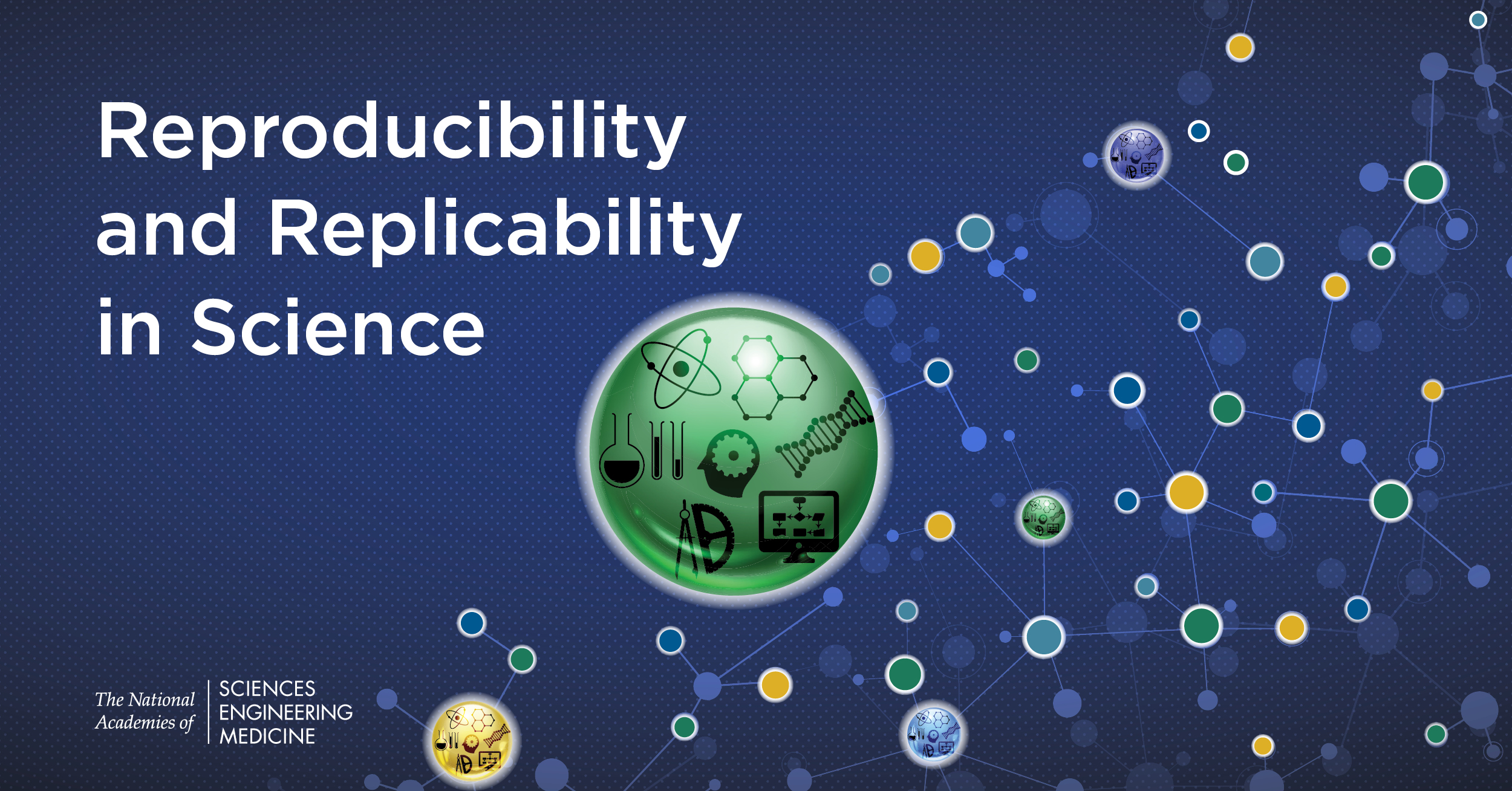Scientific research informs decisions that address many pressing issues, but what happens when results from one lab or study cannot be confirmed in another? Inconsistent results undermine the validity of scientific findings and contribute to the growing concern about replicability and reproducibility in science. A widespread strategy involving a variety of stakeholders is essential in order to promote openness and transparency in the research enterprise.
Three recent reports from the National Academies identify opportunities for meaningful improvement in research practices and offer guidance toward open, consistent, and objective science. Most recently, our 2019 report, Reproducibility and Replicability in Science, defines the terms “reproducibility” and “replicability” as distinct concepts that are each critical in achieving this goal. While many use these terms interchangeably, this differentiation is a critical step towards stronger scientific research practices and more reliable science. To learn more about open science, read or download our reports for free.
Reproducibility and Replicability in Science
One of the pathways by which the scientific community confirms the validity of a new scientific discovery is by repeating the research that produced it. When a scientific effort fails to independently confirm the computations or results of a previous study, some fear that it may be a symptom of a lack of rigor in science, while others argue …
Methods to Foster Transparency and Reproducibility of Federal Statistics: Proceedings of a Workshop
In 2014 the National Science Foundation (NSF) provided support to the National Academies of Sciences, Engineering, and Medicine for a series of Forums on Open Science in response to a government-wide directive to support increased public access to the results of research funded by the federal government. However, the breadth of the work …
Open Science by Design: Realizing a Vision for 21st Century Research
Openness and sharing of information are fundamental to the progress of science and to the effective functioning of the research enterprise. The advent of scientific journals in the 17th century helped power the Scientific Revolution by allowing researchers to communicate across time and space, using the technologies of that era to generate …
Fostering Integrity in Research
The integrity of knowledge that emerges from research is based on individual and collective adherence to core values of objectivity, honesty, openness, fairness, accountability, and stewardship. Integrity in science means that the organizations in which research is conducted encourage those involved to exemplify these values in every step of …
Questions about the reproducibility of scientific research have been raised in numerous settings and have gained visibility through several high-profile journal and popular press articles. Quantitative issues contributing to reproducibility challenges have been considered (including improper data measurement and analysis, inadequate statistical …
Reproducibility Issues in Research with Animals and Animal Models: Workshop in Brief
In June 2014, the Roundtable on Science and Welfare in Laboratory Animal Use organized a public workshop to discuss fundamental aspects of experimental design of research using animals and animal models, aimed at improving reproducibility. At this workshop, researchers from around the world explored the many facets of animal-based research that …





















